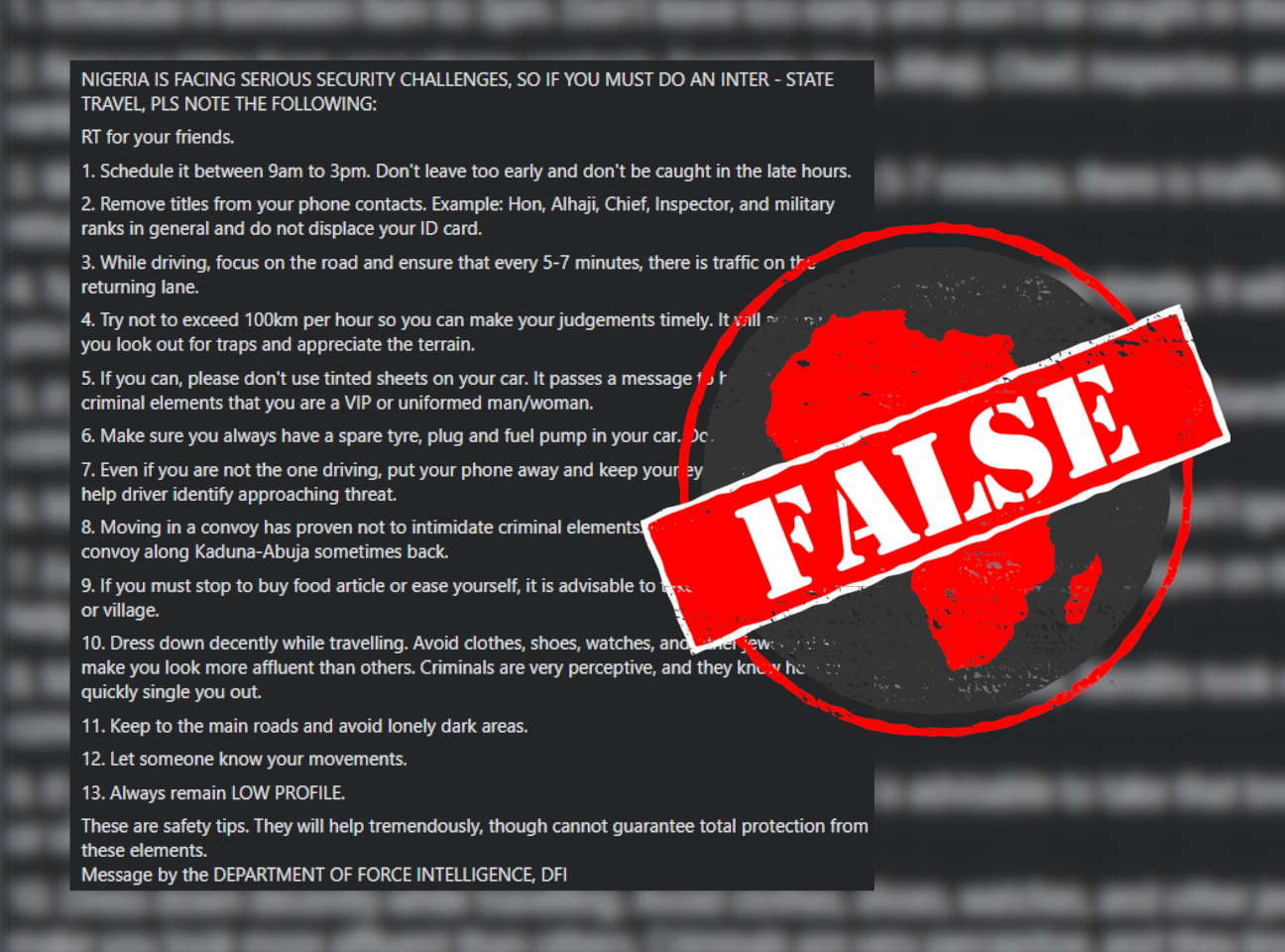IN SHORT: While the police have often advised Nigerians to be security conscious when travelling between states, a list of travel safety tips circulating on Facebook is not from them.
A message circulating on Facebook claims to show well-intentioned safety tips for travellers, purportedly issued by the Nigerian police.
The message begins: “NIGERIA IS FACING SERIOUS SECURITY CHALLENGES, SO IF YOU MUST DO AN INTER - STATE TRAVEL, PLS NOTE THE FOLLOWING: RT for your friends.”
It then gives tips for travellers, including only travelling between 9am and 3pm, removing titles from phone contacts and dressing down.
The message is signed as being from the “Department of Force Intelligence (DFI)”.
The message also appeared here, here, here, here, here, here, here, here, here, here, here, here, here, here, here, here, here, here, here, here, here, here, here, here, here, here, here, here, here , here, here, here, here and here on Facebook. Some of these posts have been published on Facebook groups with thousands of members.
As the holiday season approaches, more people are travelling in Nigeria and security officials frequently advise motorists to drive safely and be aware.
Is this more of the same advice? We checked.

Message is fake, say the police
On 30 September 2023, the Nigerian police said the message was fake.
“In recent days, a set of travel safety tips has been circulating on social media, purportedly from the Department of Force Intelligence (DFI), offering travel ‘safety tips’ for inter-state travellers in the country,” the police tweeted.
“The ‘safety tips’ in question did not originate from any official department within the Nigeria Police Force. We want to emphasise that these tips are not endorsed or issued by us.”
The police advised people to rely on official security and safety information from authorised sources.
The travel advice seems well-intentioned. But it could cause panic and confusion at a busy time of year in Nigeria.
Republish our content for free
For publishers: what to do if your post is rated false
A fact-checker has rated your Facebook or Instagram post as “false”, “altered”, “partly false” or “missing context”. This could have serious consequences. What do you do?
Click on our guide for the steps you should follow.
Publishers guideAfrica Check teams up with Facebook
Africa Check is a partner in Meta's third-party fact-checking programme to help stop the spread of false information on social media.
The content we rate as “false” will be downgraded on Facebook and Instagram. This means fewer people will see it.
You can also help identify false information on Facebook. This guide explains how.


Add new comment